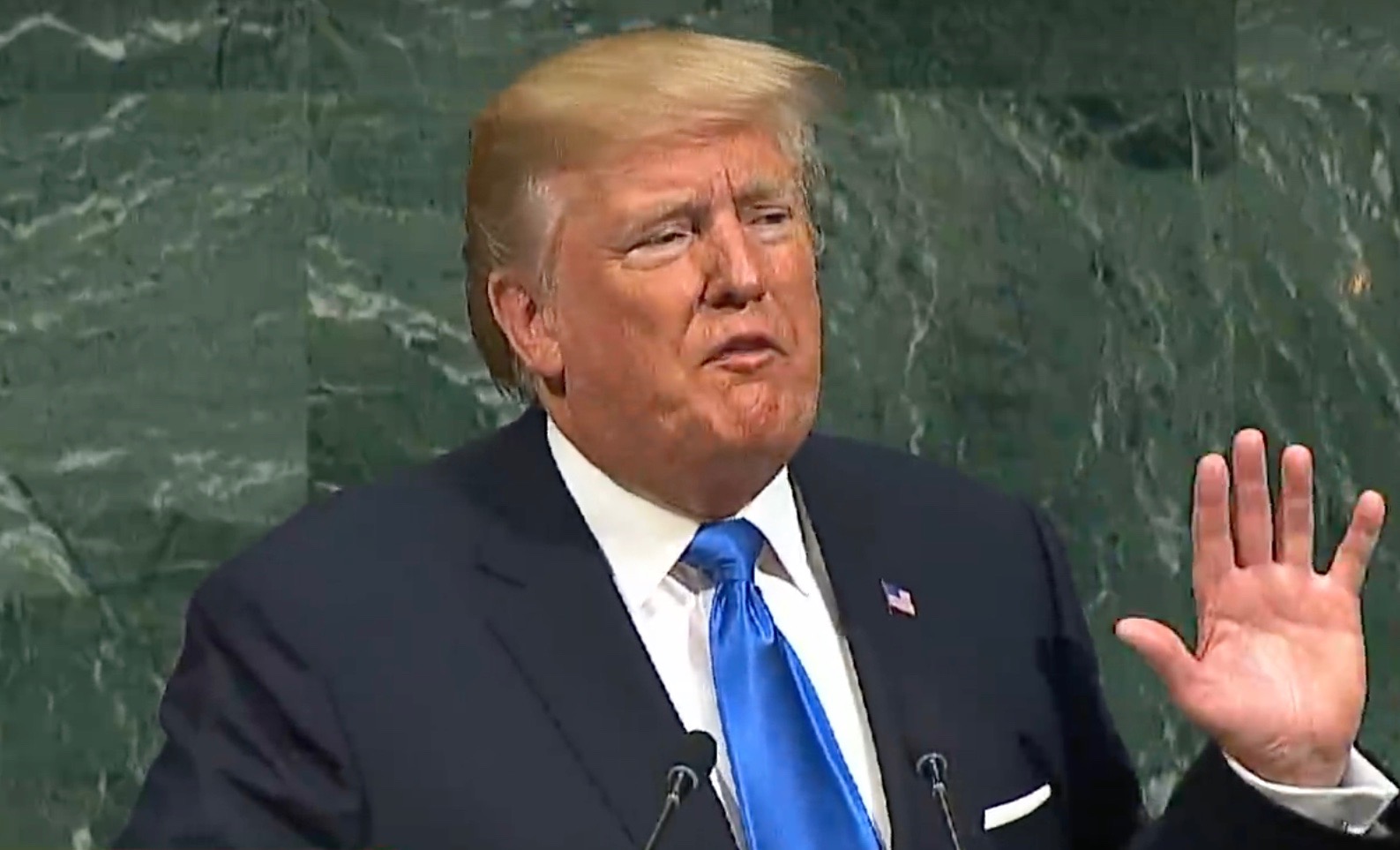
The decadence of Trump’s speech and its dangers
HAVANA — The United Nations is no longer the place where to listen to great statesmen. The pattern of world politics is the lack of soaring ideas and the lack of valor in expressing them.
It is also true that the United States was never characterized by the quality of its spokesmen; Kennedy and Obama were exceptions in a long list of speakers without substance or originality.
But Donald Trump has surpassed all the standards of mediocrity. His recent speech at the U.N. is scary because of its superficiality, because behind the contempt for listeners’ intelligence comes brute force, which is something the U.S. has plenty of. He appeared to be speaking in Wichita and for all practical purposes he was in Wichita, because he couldn’t care less what the world thinks.
Trump returned to the most elementary speech of the Cold War. I imagine that many of the youngest listeners had to turn to their history books — better yet, the Internet — to find out what the Marshall Plan was all about. And what can I say about his extemporaneous criticism of socialism; someone might have glanced at the Russian delegation’s table, looking for the ghost of the Soviet Union.
The core of the speech was the promotion of fear. The fear generated by the malevolent forces that act against the United States and the fear the U.S. spreads worldwide when it talks about defending itself from those forces. It seems that Trump tries to convince us that U.S. sovereignty is threatened and lashes out against everybody else’s sovereignty because “America Comes First.”
He praised all U.S. wars, even the Vietnam War, and tried to sell them to us packaged in the rhetoric of heroism and the disinterest of the American soldiers. I don’t remember any U.S. president boasting at the United Nations of propitiating the world’s largest military budget, precisely when the other delegations speak of peace and after the approval of a Treaty on the Prohibition of Nuclear Weapons that was 20 years in the making.
Migration is one of Donald Trump’s favorite topics, and he broached it with the crushing logic of repression, regardless of causes and consequences. One of Trump’s most striking characteristics is his incapacity to convey sensitivity over human problems, even when he tries to — and he tries very little because his vision of power is related to arrogance and bravado.
He must have felt more comfortable when he boasted of the United States’ capacity to wipe North Korea off the face of the earth; when he threatened Cuba and Venezuela; and when, in the rudest terms, he reminded the U.N. that he who pays, commands.
One of the most notable statements Trump made when assuming the presidency was that he would not impose the U.S. system and values to the rest of the world.
That seemed like an absolute split from the neoconservative crusade of the George W. Bush era, as well as a move away from Obama’s ideological plan known as “smart power,” which could be interpreted as a reduction of U.S. interventionism worldwide.
Obviously, that wasn’t the case; it was a much more basic way to justify the facts. The objective is for the world to contribute — whether it likes it or not — to the sustentation of this system in the United States. At least we need to thank him for his sincerity.
Trump’s policy takes shape in Congress and has the support of a critical mass that, although in the minority, was sufficient for his election. When he addresses the U.N. or speaks anywhere else, we’re seeing a United States that is not glamorous and advanced but a country that incubates hatred of all kinds and expects its president to “represent its interests” at any cost.
U.S. chauvinism does not originate in Donald Trump, but it has been exacerbated to levels approaching neofascism. When Trump pardons Arizona Sheriff Joe Arpaio, he does so aware that it will please many potential hangmen who act inspired by the most brutal xenophobia, even though they go to church every Sunday.
This is the real danger that we’re facing. And so are the Americans themselves.

